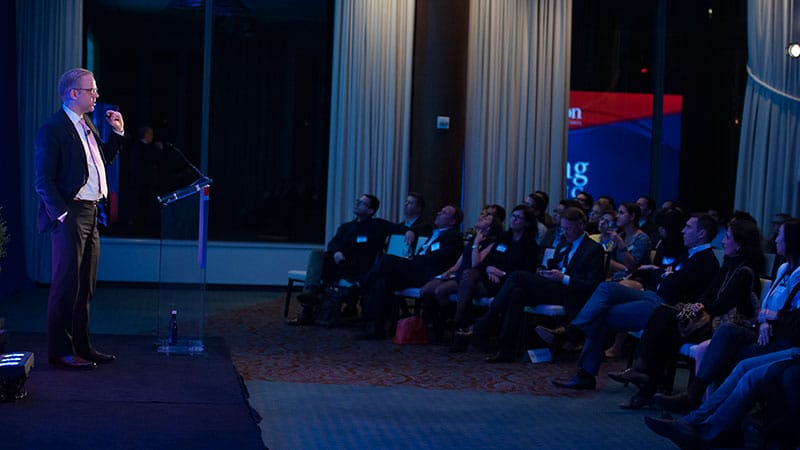The idea that you can make money and deliver a social benefit is hardly new, but David Musto brings new research that finds that social enterprises and their funding are sustainable, at least in their current form. And the timing couldn’t be better. Why? Because social enterprises are tapping capital markets for funding.
The following scenario is more plausible than ever: Say, a “doing well by doing good” type of firm, imagine a public version of Warby Parker, put itself up for sale. Let’s say the firm received one bid in which it was stipulated that the buyer would maintain the firm’s buy-one, giveaway-one model. Suppose another buyer came in at $10 more per share, but the higher bid was contingent on the social enterprise giving up its social component. Would a Warby be forced to take the higher bid?
The traditional legal view is that, yes, the target firm would have to accept a higher bid to maximize shareholder value.
But new court cases—such as Burwell v. Hobby Lobby Stores Inc., made famous for pitting religious views of company ownership versus federal health care regulations—and developing legal precedents suggest otherwise. Musto, Wharton’s Ronald O. Perelman Professor in Finance, pointed to the business judgment rule, which as now understood raises the threshold of evidence for someone who wants to prove a company is not promoting long-term shareholder value—to the point where you basically need to show negligence or fraud. The business judgment rule presumes that company directors are informed, acting in good faith and have the company’s best interests in mind when making decisions.
Then again, social enterprises on the selling block would also need to consider whether they are in “Revlon mode”—a term dating back to a case in the 80s, when MacAndrews & Forbes sought to buy the makeup firm. Revlon wanted to take another offer that it felt would maximize long-term shareholder value, but the courts found that it had to take the higher offer (MacAndrews & Forbes’) because Revlon was already announced as being sold. Once a firm is for sale, the Revlon mode reasoning goes, only short-term shareholder interests prevail. (Revlon is still owned by MacAndrews & Forbes, whose chairman and CEO, coincidentally, is Ronald O. Perelman W64 WG66.)

Professor David Musto presents the latest research on impact investing and social enterprise during the Wharton Lifelong Learning Regional Alumni Programs event in New York.
Social entrepreneurs may find additional support for their social mission at the state level—at least in the 32 states that have constituency statutes. These protect other stakeholders besides shareholders, such as customers, suppliers, employees, in the event of a takeover. They grew out of the 80s wave of buyouts, during which employees suffered because of resulting layoffs. Musto suggested that the beneficiaries of a social enterprise’s largess—such as the people in developing countries who receive free glasses every time a consumer in the States buys a Warby Parker pair—could be a protected constituency.
Whatever the protection, social entrepreneurs need it if they plan to raise capital in financial markets.
“You want the legal right … to say, ‘Forget you. I am going with the guy who is going with the lower price because then I get to preserve my mission,” Musto said during his presentation at the New York City Lifelong Learning Regional Alumni Programs event Nov. 9, 2015.
Watch Professor David Musto explain why impact investing and social entrepreneurship could be sustainable trends, ever-more relevant to anyone in the financial markets, in our video interview above.
Musto conducted his latest impact investing research in conjunction with the Wharton Social Impact Initiative (WSII) and Chris Geczy, adjunct professor of finance and academic director of the Wharton Wealth Management Initiative Academic and director of the Jacobs Levy Equity Management Center for Quantitative Financial Research.
Here’s how that research packs a punch. Where social enterprises have that right to say, “Forget you,” would investors shy away from making such impact investments? Musto reported that the numbers for institutional investors bear out a small drop in interest but “nothing to get excited about.” His takeaway: institutional investors do not see it as contrary to their shareholder duty to invest in companies that could serve other masters besides shareholder value. Legally, such companies now enjoy more protections on the federal level thanks to an October 2015 Department of Labor decision for ERISA plan fiduciaries (like pension funds) that makes it acceptable for investors to consider social impacts of their investments. In explaining the decision, Labor Secretary Thomas Perez said that the U.S. government needs to keep pace with non-ERISA investment trends; he cited figures that non-ERISA investments in Environmental, Social and Governance (ESG) funds were at $4.3 trillion in 2014, up from $202 billion in 2007.
For Musto, another consideration is whether it’s important for investors to preserve the mission of a social enterprise upon exit. Out of 53 impact investing private equity funds that he and fellow researchers surveyed, only four said they didn’t believe missions would persist and exited anyway.
What’s most important for some: The WSII research demonstrates that impact investing pays off. Out of the 53 funds, 32 sought and gained returns in the ballpark of returns delivered by public markets (with some funds going back to 2000).
Musto has plans to continue his research, which will hopefully bear out in the next few years whether for-purpose social enterprises and impact investments are fads, or whether they prove themselves sustainable alternatives to traditional for-profit models.
Editor’s note: Discover which Wharton faculty members will be presenting in a city near you by visiting the website for Wharton Lifelong Learning Regional Alumni Programs.
Access a full copy of WSII’s first impact investing research report, “Great Expectations: Mission Preservation and Financial Performance in Impact Investments” on the WSII website.)


























